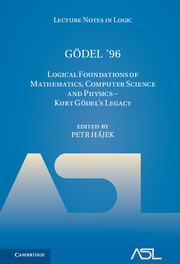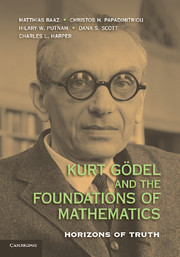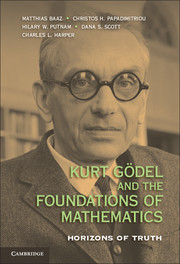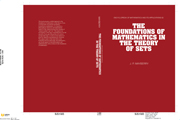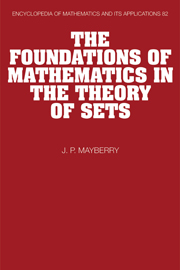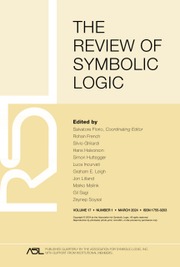Gödel '96
Since their inception, the Perspectives in Logic and Lecture Notes in Logic series have published seminal works by leading logicians. Many of the original books in the series have been unavailable for years, but they are now in print once again. This volume, the sixth publication in the Lecture Notes in Logic series, collects the proceedings of the conference 'Logical Foundations of Mathematics, Computer Science, and Physics - Kurt Gödel's Legacy', held in Brno, Czech Republic, on the 90th anniversary of Gödel's birth. The broad range of speakers who participated in this event affirms the continuing importance of Gödel's work in logic, physics, and the philosophy and foundations of mathematics and computer science. The papers in this volume range over all these topics and contribute to our present understanding of them.
- Contains papers from a broad range of speakers covering all of the domains touched by Kurt Gödel's work
- Gödel's work has wide and continuing importance in the logical foundations of mathematics, computer science and physics
- Helps readers to understand the present state of knowledge in these domains
Product details
March 2017Hardback
9781107168022
330 pages
229 × 152 × 22 mm
0.65kg
11 b/w illus.
Available
Table of Contents
- Preface
- Part I. Invited Papers:
- 1. Gödel's program for new axioms: why, where, how and what? Solomon Feferman
- 2. Infinite-valued Gödel logics with 0-1-projections and relativizations Matthias Baaz
- 3. Contributions of K. Gödel to relativity and cosmology G. F. R. Ellis
- 4. Kurt Gödel and the constructive mathematics of A. A. Markov Boris A. Kushner
- 5. Hao Wang as philosopher Charles Parsons
- 6. A bottom-up approach to foundations of mathematics Pavel Pudlák
- 7. K-graph machines - generalizing Turing's machines and arguments Wilfried Sieg and John Byrnes
- 8. Forcing on bounded arithmetic Gaisi Takeuti and Masahiro Yasumoto
- 9. Uniform interpolation and layered bisimulation Albert Visser
- Part II. Contributed Papers:
- 10. Gödel's ontological proof revisited C. Anthony Anderson and Michael Gettings
- 11. A uniform theorem proving tableaux method for modal logic Tadashi Araragi
- 12. Decidability of the \exists*\forall*-class in the membership theory NWL Dorella Bellè and Franco Parlamento
- 13. A logical approach to complexity bounds for subtype inequalities Marcin Benke
- 14. How to characterize provably total functions Benjamin Blankertz and Andreas Weiermann
- 15. Completeness has to be restricted - Gödel's interpretation of the parameter t Giora Hon
- 16. A bounded arithmetic theory for constant depth threshold circuits Jan Johannsen
- 17. Information content and computational complexity of recursive sets Lars Kristiansen
- 18. Kurt Gödel and the consistency of R## Robert K. Meyer
- 19. Best possible answer is computable for fuzzy SLD-resolution Leonard Paulík
- 20. The finite stages of inductive definitions Robert F. Stärk
- 21. Gödel and the theory of everything Michael Stöltzner
- 22. Replacement ─/→ collection Andrzej M. Zarach.

